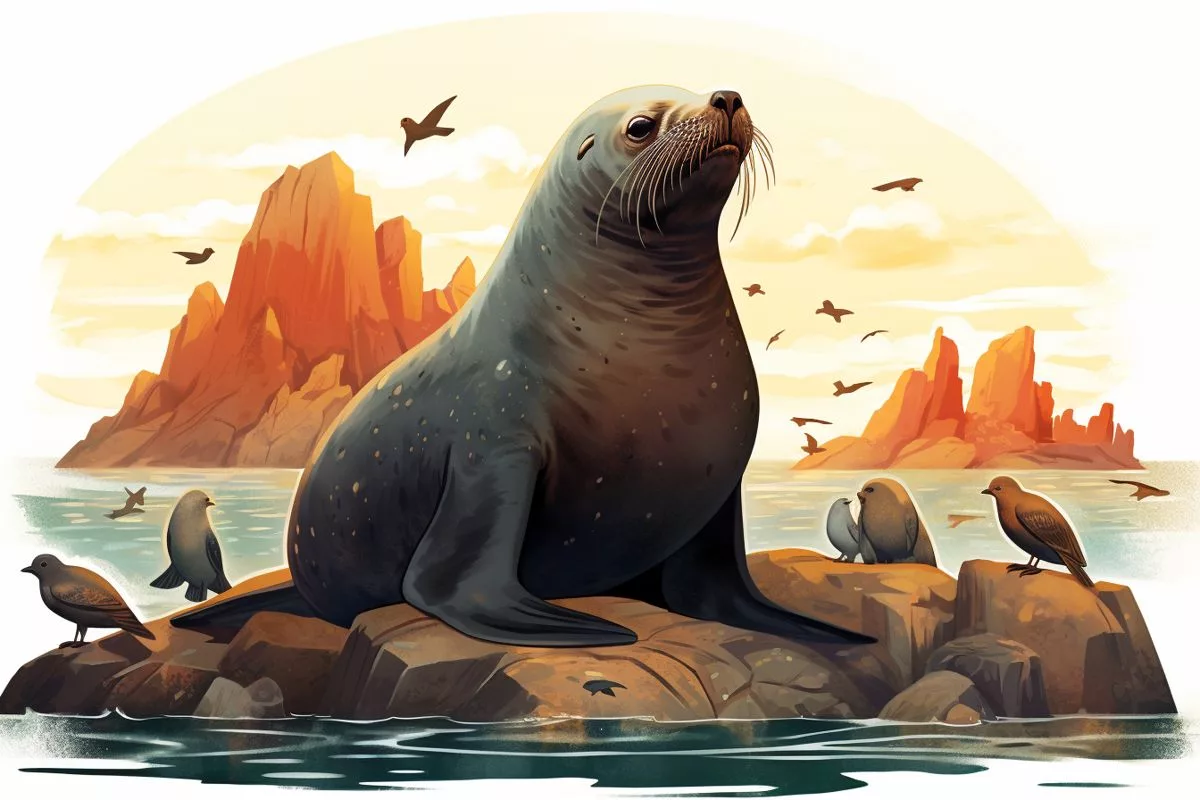The South African Department of Forestry, Fisheries, and the Environment is concerned about Cape fur seals being harassed by coastal visitors, which not only endangers their survival but also goes against wildlife protection mandates. Recent incidents include people teasing, assaulting, and luring seals for social media content, and even drowning them. These actions are illegal and punishable by law. The public is encouraged to report any concerns to the authorities and to respect and safeguard these marine creatures, which play a critical role in the coastal ecosystem.
What is the South African Department of Forestry, Fisheries and the Environment’s concern about Cape fur seals?
The DFFE is concerned about the rising number of instances where Cape fur seals suffer harassment by coastal visitors, which not only poses a risk to their survival but also contravenes the nation’s wildlife protection mandates. The physical interaction with, and feeding of, seals is illegal and constitutes a punishable crime. The public is encouraged to report any concerns to the Department, the SPCA, or the City of Cape Town.
Spotlight on the Plight of the Cape Fur Seals
The South African Department of Forestry, Fisheries and the Environment (DFFE) has recently expressed its apprehension over a rising number of instances where Cape fur seals suffer harassment by coastal visitors. This disrespectful behavior towards these marine creatures not only poses a risk to their survival but also contravenes the nation’s wildlife protection mandates.
Cape fur seals form an integral part of the marine ecosystem in which they dwell. Their existence contributes significantly to the coastal ecology, ensuring the maintenance of nature’s equilibrium and the overall health of the oceans and the food chain. Despite these crucial roles, recent human interactions with these mammals have unveiled a troubling disregard for their welfare, prompting the need for stricter protective actions.
The DFFE’s worry springs from a plethora of disturbing events. The distressing catalogue includes instances of dogs being permitted to disturb or assault resting seals, people pelting stones at the animals, and alluring seals to pursue individuals for social media content, often instigating them with sticks. Some individuals have been caught in the act of teasing seals for photography, assaulting them during nautical activities, or even tempting them with food for personal profit, leading to more photography sessions with the pacified seals. A chilling case involved the purported drowning of two seals by some individuals.
The Critical Importance of Wildlife Regulations
Such activities infringe upon the Threatened or Protected Marine Species Regulations of 2017, which classifies seals as a protected species. The physical interaction with, and feeding of, seals is not just hazardous for both the humans and seals involved, but it is also illegal, constituting a punishable crime.
In a recent episode, the law enforcement agencies and the Society for the Prevention of Cruelty to Animals (SPCA) collaborated, leading to the conviction and sentencing of four individuals by the Khayelitsha Magistrates Court, apprehended for stoning a seal resulting in a lethal injury. This incident emphasizes the necessity for rigorous enforcement of the regulations, where a failure to acknowledge the protection accorded to these creatures can result in legal consequences.
It is crucial to understand that Cape fur seals are wild animals. Harassment can provoke these creatures to become unexpectedly aggressive towards humans, often leading to severe injuries. The activities currently taking place violate the aforementioned regulations and pose a significant risk to both the public and the seals.
Community Involvement in Conservation Efforts
Despite the worrisome trend of human malice, there are remedial procedures in place. Any seal in distress is provided with medical treatment and rehabilitation, offering a glimmer of hope for these creatures. The public is encouraged to report any concerns to the Department, the SPCA, or the City of Cape Town, emphasizing the value of community participation in conservation initiatives.
The appeal to the public to respect and safeguard the Cape fur seals forms a crucial strategy in preserving the inherent beauty of South Africa’s coastal areas. It offers a reminder that the onus of preserving the environment and its inhabitants rests not only with the government organizations but with each individual. A united effort can ensure that the Cape fur seals continue to flourish, securing their deserved place in the coastal ecosystem.
In summary, while the situation is dire, the initiatives undertaken by the DFFE, aided by the SPCA and the City of Cape Town, serve as a ray of hope. Conservation is a collaborative endeavour, involving the dedication of institutions and individuals alike to ensure its success. If we respond to the call to protect, respect, and coexist with these marine creatures, we can guarantee a future where Cape fur seals continue to adorn our coasts with their presence.
1. What is the concern of the South African Department of Forestry, Fisheries, and the Environment about Cape fur seals?
The DFFE is concerned about Cape fur seals being harassed by coastal visitors, which not only endangers their survival but also goes against wildlife protection mandates. Recent incidents include people teasing, assaulting, and luring seals for social media content, and even drowning them.
2. Why are Cape fur seals important for the coastal ecosystem?
Cape fur seals form an integral part of the marine ecosystem in which they dwell. Their existence contributes significantly to the coastal ecology, ensuring the maintenance of nature’s equilibrium and the overall health of the oceans and the food chain.
3. What are the consequences of physically interacting with and feeding the seals?
Physical interaction with and feeding of seals is illegal and constitutes a punishable crime. It is not just hazardous for both the humans and seals involved, but it also violates the Threatened or Protected Marine Species Regulations of 2017, which classify seals as a protected species.
4. How are incidents of harassment towards seals being dealt with?
Law enforcement agencies and the Society for the Prevention of Cruelty to Animals (SPCA) collaborate to enforce the regulations, leading to the conviction and sentencing of some individuals, such as those who stoned a seal resulting in a lethal injury.
5. What can the public do to safeguard Cape fur seals?
The public is encouraged to report any concerns to the Department, the SPCA, or the City of Cape Town, emphasizing the value of community participation in conservation initiatives. It is important to respect and safeguard these marine creatures to preserve the inherent beauty of South Africa’s coastal areas.
6. Why is collaborative effort essential in conservation?
Conservation is a collaborative endeavor, involving the dedication of institutions and individuals alike to ensure its success. If we respond to the call to protect, respect, and coexist with these marine creatures, we can guarantee a future where Cape fur seals continue to adorn our coasts with their presence.








